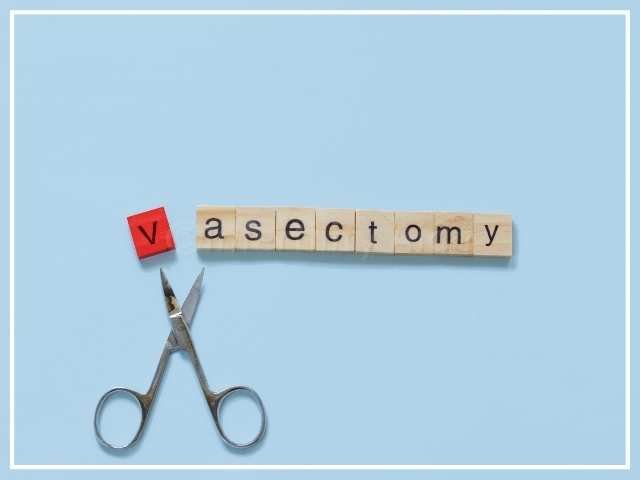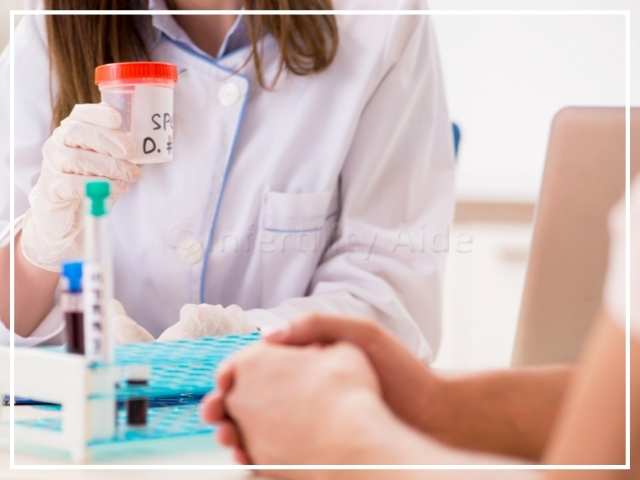Every year, in the US alone, around 500,000 men undergo vasectomy as a method of permanent sterilization (1), but then for some them, the circumstances change and they want a baby again. Reversal of vasectomy is possible but IVF after vasectomy is generally recommended as the better option for men planning parenthood again.
What is Vasectomy?
A vasectomy, also called the snip, is a minor surgical procedure which acts as a permanent form of contraception. During vasectomy, the tubes linking your testes to urethra—the vas deferens is cut, and the ends are cauterized (sealed with heat), thereby preventing sperm from being carried to your semen.
You can also opt for a no-scalpel vasectomy in Thailand, where the vas deference is accessed via small puncture holes, which are so small that it eliminates the need for stitches on the skin later on.

Can you retrieve sperm for IVF after vasectomy?
You’ll need surgical sperm retrieval to have the sperm removed directly from your testicles, before it is used to fertilize the egg via ICSI.
They may be performed in either your doctor’s office or an operating room. The main difference between these techniques is the site from which the sperm is retrieved.
1. PESA (Percutaneous Epididymis Sperm Aspiration)
A needle attached to a syringe is passed into the epididymis (a tube behind the testes that carries sperm). Sperm is then aspirated directly from here.
2. TESA (Testicular Sperm Aspiration)
A needle attached to a syringe is passed through the scrotum and sperm is aspirated directly from the testicle.
3. TESE (Testicular Sperm Extraction)
This is slightly different to the other two aspiration techniques as it involves taking a small biopsy of tissue from the testicle. This tissue is then processed in a laboratory, in order to extract the sperm cells. This is usually performed if no sperm was retrieved using PESA or TESA.
A study found that almost 7.5% of the men who undergo this surgery, end up regretting it and seek ways to have a baby after vasectomy.
How effective is vasectomy reversal?
Vasectomy reversal is a microsurgery that is technically complex and requires specialized training. It requires the below steps:
- Examination of the seminal fluid from the end of the cauterized tube to ensure sperm is present in it. This is will decide what kind of vasectomy is to be performed:
- Decide on the kind of vasectomy reversal to be performed:
- Vasovasotomy (VV) – the cut ends of the vas deferens are simply rejoined
- Vasoepididymostomy (VE) – the blockage has to be bypassed so the vas deference is connected directly to the epididymis. This is more complex.
- The surgery is performed under general anesthesia and typically takes 3-5 hours, but you’re allowed to go home the same day.
Also, semen analysis will be done first after 6 weeks of vasectomy reversal but it can take upto 1 year for the sperm to appear in the ejaculate.

The efficacy of VV can be around 85%-90%, if the vas deference was not extensively destroyed during vasectomy. However, the actual patency rate is much lower (2) because of the complexity of the surgery and also because not every man is the ideal candidate.
When does vasectomy reversal not work?
The original vasectomy surgery and its subsequent reversal may leave a large amount of scar tissue in the vas deferens, which could obstruct with the sperm passage even after the tubes are rejoined.
Also, since your testicles continue to produce sperm even after the initial vasectomy and it is not being transported outside, it could be mistaken as foreign object and attacked by the body’s immune system.
So, you may not find any sperm in the ejaculate because of anti-sperm anti-bodies, which are almost always found if it’s been over 10 years since your vasectomy.
Is vasectomy reversal cheaper than IVF?
If you’re a good candidate for the surgery, have healthy sperm formation in your body, and your female partner is in good reproductive health, you may able to achieve a natural pregnancy after vasectomy reversal, which will be cheaper than IVF.
However, if you’re among half the men for whom vasectomy reversal doesn’t give the required outcome, it may turn out to be more expensive as it adds to the cost of IVF and surgical sperm extraction, besides the loss time.
What is the cost of IVF after vasectomy?
The cost of IVF + surgical sperm retrieval varies with the location. Below is the estimated average cost of IVF and surgical sperm extraction:
| Country | Average cost of IVF | Cost of surgical sperm retrieval |
|---|---|---|
| USA | $15,000 – $25,000 | $5,000 |
| Canada | $13,500 – $16,000 | $3,500 |
| Mexico | $5,000 – $8,000 | $2,500 |
| Europe | $3,500 – $8,000 | $3,000 |
| Thailand | $6,500 – $8,500 | $2,800 |
| India | $4,000 – $5,500 | $2,000 |
| Malaysia | $4,200 – $5,800 | $2,200 |
| Australia | $12,500 – $16,000 | $3,000 |
| Singapore | $7,500 – $9,500 | $2,700 |
Does insurance cover IVF after vasectomy?
Since it is an elective procedure, the insurance coverage for IVF is almost non-existent in most countries.
In some countries, if you qualify, the Government or your private employer may offer coverage for 1-3 cycles of IVF.
Are success rates of IVF after vasectomy better than vasectomy reversal?
IVF after vasectomy obviously leads to better success than vasectomy reversal because of the following reasons:
- The damage to vas during original vasectomy is of no consequence
- The presence of anti-sperm anti-bodies does not threaten the success of the procedure
- Post-op scarring is also irrelevant since there is no repeat surgery
- Any tubal blockage, ovulation problems, or endometrial issues in the female partner is also tackled with IVF, so your chances of conception are better
If you need more information or a customized package for IVF after vasectomy overseas, get in touch using the red contact button on this page.
References
- Eisenberg, M. L., Henderson, J. T., Amory, J. K., Smith, J. F., & Walsh, T. J. (2009). Racial differences in vasectomy utilization in the United States: data from the national survey of family growth. Urology, 74(5), 1020–1024. https://doi.org/10.1016/j.urology.2009.06.042
- Ramasamy, R., & Schlegel, P. N. (2011). Vasectomy and vasectomy reversal: An update. Indian journal of urology: IJU: journal of the Urological Society of India, 27(1), 92–97. https://doi.org/10.4103/0970-1591.78440
Reviewd by: Dr. Meenakshi, PhD